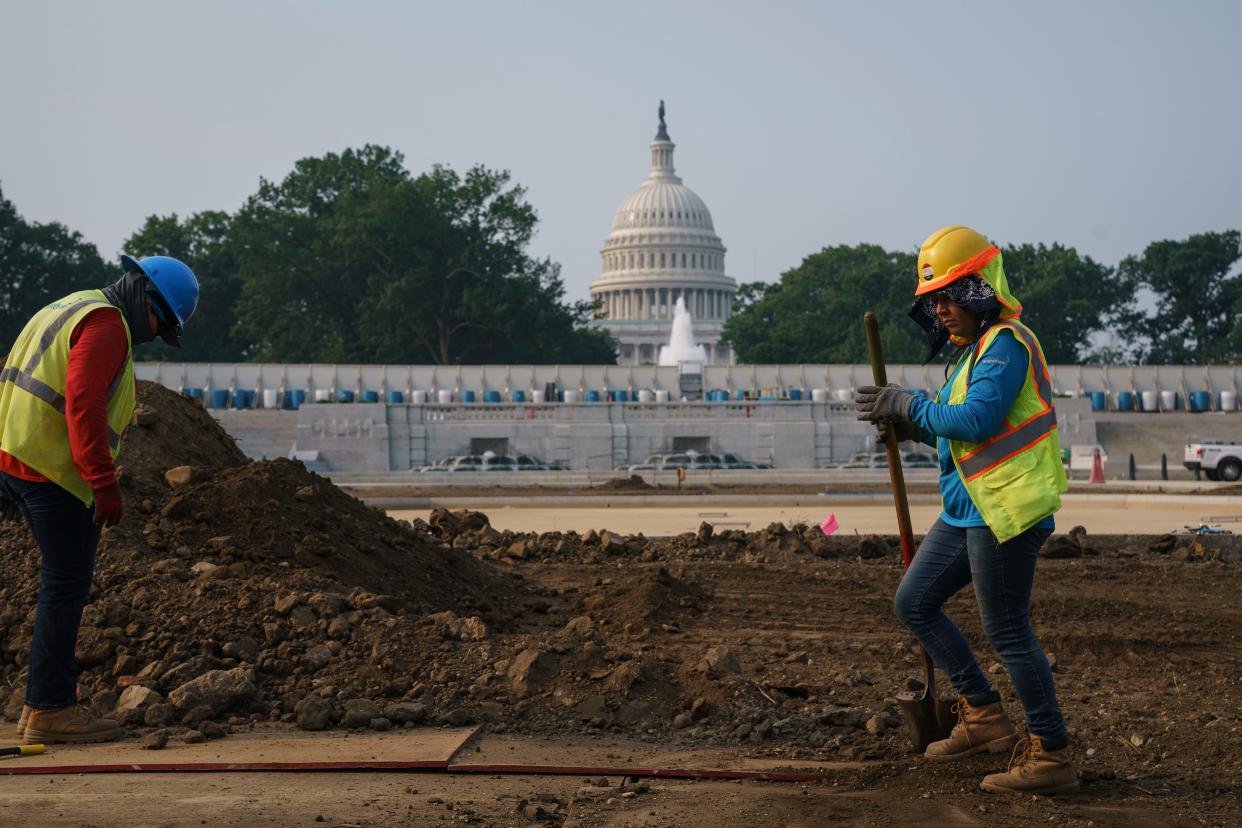Biden infrastructure bill a rare sighting of senators working for Americans? Say it's so.

Before the week is out, Republican and Democratic senators could come together in an era of overwrought political acrimony and division to actually achieve what they were elected to do – improve the lives of Americans.
According to the Biden administration, the bipartisan infrastructure bill the senators will vote on provides the largest federal investment ever in public transit, the most money ever spent on clean drinking water and waste-water systems, and the biggest upgrade of bridges since the interstate highway system was built.
That's a lot of superlatives, making the $550 billion in new federal infrastructure spending over the next five years a tad nebulous to grasp. But consider that it means restoring a crumbling highway span just down the road, or replacing the lead pipe bringing poisoned water to 10 million homes or establishing high-speed internet for 30 million Americans.
What C-minus infrastructure costs Americans
Think of combustion-engine vehicles and how they are the single greatest source of heat-trapping carbon dioxide pollution – and that this bill is at least a $7.5 billion down payment on a chain of electric-car charging stations across the country, with another $7.5 billion for new zero- or low-emission buses and ferries.
Consider that Americans cross about 45,000 bridges that are in disturbingly poor condition; or that before the pandemic, traffic congestion was so bad commuters idled away, on average, an extra 54 hours a year behind the wheel.
Roads, bridges, water systems, dams, levees and airports have fallen into such disrepair that the American Society of Civil Engineers this year gave national infrastructure a grade of C-minus. And while it doesn't fit into the category of a public system, the condominium that collapsed in June in Surfside, Florida, killing 98, certainly was a reminder of how critical infrastructure is.
Years of promises of infrastructure improvements
Recent presidents and congresses have frittered away years promising sweeping infrastructure improvements that never were. Former President Donald Trump's repeated call for an "infrastructure week" of reform became a running joke.
USA TODAY's opinion newsletter: Get the best insights and analysis delivered to your inbox
This time, a core group of moderate Republican and Democratic senators, joined by a President Joe Biden willing to compromise on his demands, were able to reach a tentative deal that survived a procedural vote last week with an overwhelming 67 votes. This is no small achievement. Funding infrastructure should be a no-brainer, but this is a Congress so politically fractured that members can't even agree to wear masks during a pandemic (they should) or whether the last presidential election was stolen (it wasn't).
(Further adding to mutual distrust is a parallel effort by Democrats to pass a second, multitrillion dollar "human infrastructure" bill later this year through a process known as reconciliation, where only a simple majority vote is necessary in the Senate.)
So final Senate approval of the bipartisan infrastructure deal this week will still be a cliffhanger. Its financing scheme is a bit fuzzy, relying not on new taxes or user fees but on diverted coronavirus funds, uncollected cryptocurrency taxes and some pay-for-itself financial benefits to the economy.
And even if the Senate approves, the House of Representatives still must weigh in.
But symbolically, if the bill passes, it should please the overwhelming majority of Americans who have consistently told pollsters they want bipartisanship in Washington.
And practically, it will cure a good portion of the infrastructure ills that plague society and stifle economic growth.
Does it mean bipartisanship is back? Not by a long shot. But it means it's possible.
"Neither side got everything they wanted in this deal," Biden said after the procedural victory in the Senate last week. "But that's what it means to compromise and forge consensus – the heart of democracy."
USA TODAY's editorial opinions are decided by its Editorial Board, separate from the news staff and the USA TODAY Network. Most editorials are coupled with an Opposing View, a unique USA TODAY feature.
To read more editorials, go to the Opinion front page or sign up for the daily Opinion email newsletter. To respond to this editorial, submit a comment to letters@usatoday.com.
This article originally appeared on USA TODAY: Biden infrastructure bill: Senators actually at work improving America

